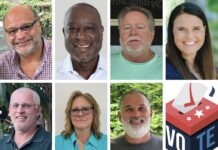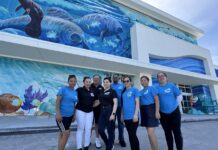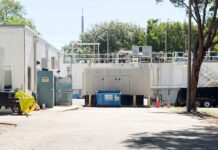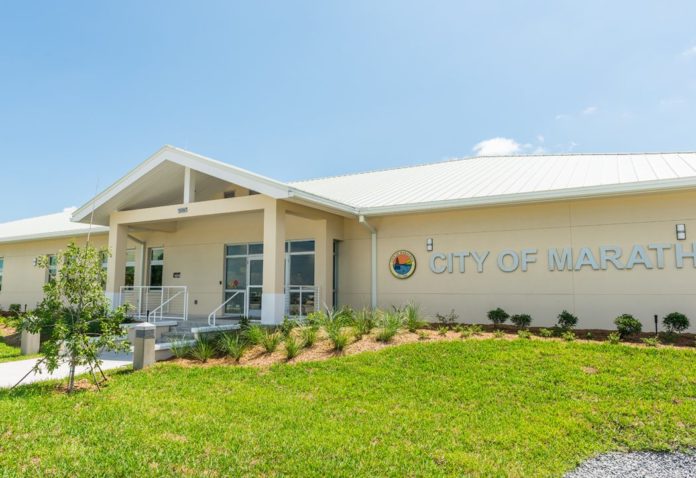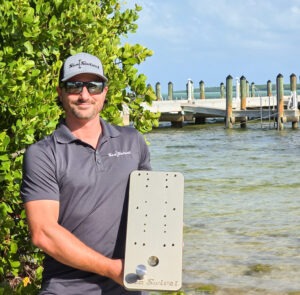What began with attempts to immediately move forward on several campaign promises from new councilman Jeff Smith eventually turned to a frustrated outburst from a Coco Plum resident as the Marathon City Council convened for its monthly meeting on Dec. 13 with a packed discussion agenda.
Opinion on Vacation Rental Changes Is a No-Go
Citing the ever-present concern of the growing vacation rental stock in Marathon, Smith urged the council to pursue an attorney general’s opinion regarding unclear language in Florida statute 509.032(7). The statute as currently interpreted prevents Marathon from placing any additional limits on vacation rentals without forfeiting the grandfather status of its existing vacation rental ordinance – the only ordinance preventing nightly rentals for any home in the city. Smith noted that Islamorada has previously been able to restrict rentals using property value thresholds, a provision that appears permissible in the final clause of the statute.
“It is not a recommendation to do anything to our ordinance at this time,” said Smith. “I do believe it’s appropriate to ask for that (clarification) because we assure our constituents that we’re doing everything in our power to attempt to address their concerns regarding the impact of vacation rentals.”
“I agree that there is very little inherent danger in seeking an attorney general’s opinion,” said city attorney Steve Williams. “However, there is no effective way to test the survival of a regulatory ordinance. … We can get what Mr. Smith would say is a favorable opinion from the Attorney General’s office. That will not stop a citizen or DEO or someone else from attacking (a new ordinance).”
After discussion, no other council member would second Smith’s motion.
Second Meeting Gets Green Light
Marathon residents will now have two opportunities each month to officially interact with city council members, with a second monthly meeting set for the fourth Tuesday of each month. Suggested by Smith as a fulfillment of a campaign promise by numerous council candidates and enacted by Mayor Luis Gonzalez, the second meeting will feature no action items. Rather, it will serve as a roundtable to discuss pressing issues with experts and residents in compliance with Florida’s Sunshine Law. The meetings are scheduled to begin in January.
Coco Plum Development Eyes BPAS Workaround
Following a 2-1 vote recommending approval from the Marathon Planning Commission at its Oct. 17 meeting, the council voted 4-1 to approve a modified version of the conditional use permits for the upcoming 60- and 64-unit affordable housing developments at the bend in Coco Plum Drive, commonly known as Seaview Commons. Councilman Kenny Matlock was the lone “nay” vote.
Initially the beneficiary of a large portion of the 300 affordable housing allocations revoked in an Aug. 3 opinion by Miami’s Third District Court of Appeals, the development is approved in theory but currently unable to proceed with permitting.
In addition to adding a new emergency exit driveway, new language added to the conditional use permits states that the developments “must obtain … affordable residential allocations to be transferred via the Transfer of Building Rights (TBRs), Building Permit Allocation System (BPAS) process, or any other legally established process, including statutory, prior to building permit issuance.”
Speaking on behalf of the developer, attorney Bart Smith indicated in both the planning commission and city council meetings that the development may look to “utilize certain statutory exemptions” in order to complete the development without securing traditional building allocations required in the Keys.
The statute in question is Florida state statute 166.04151(1), which provides the ability of a municipality to adopt “an ordinance, rule or other measure that is adopted for the purpose of increasing the supply of affordable housing.”
A later section in the same statute (166.04151(5)) indicates that certain sections of the statute do not apply in areas of critical state concern – including Marathon – but does not include section 1 in that clarification, raising the question of whether the statute’s first section could be used to develop additional affordable housing in Marathon outside of the typical ROGO/BPAS system. Language from the statute is included in the conditional use permit to be read by the state.
As is the case with all significant developments in an Area of Critical State Concern (ACSC), building via this statute would require approval by the state Department of Economic Opportunity. There is a chance the March 2023 session of the state legislature may restore the development’s ability to build as planned with the return of the currently-revoked allocations. But if not, Bart Smith said his clients – Coco Vista Community LTD and VC Seaview LTD – are willing to pay his legal fees for any lawsuits that may result from the workaround.
The proposed change drew a handful of Coco Plum residents who again spoke against the development, one of whom brought a brief recess in the meeting when resident Mike Millard approached the podium outside of a public comment period to accuse the council of “papering over” the proposed change. However, as noted by Bart Smith and city staff, a vote to reject the proposed permit would simply revert back to the development’s original 2018 permit still in effect, and progress could still continue using traditional allocations.
Should the new conditional use permit pass through the state without appeal, the decision to grant building permits based on the statutory exemption would fall on city staff. Depending on how quickly the permit is transferred to the state and whether DEO takes its full 45 days allowed for review, the end of the appeal period would fall near the beginning of the state legislative session.
“At that point, the city is in a conundrum,” Williams told the council. “If we don’t issue those permits, at that time I assume Mr. Smith’s client is going to get quite angry and try to get Mr. Smith to sue us. If we do … there are going to be other people around the state, including folks in Tallahassee itself, who are going to come to the city and say, ‘What the heck are you doing issuing permits for units you don’t have yet?’ I don’t like either option. … You’re facing potential liability from either direction.”
When asked by Jeff Smith if the city would receive an indemnification or hold harmless agreement as well as a conflict waiver from Bart Smith, Williams replied that he would pursue “anything (he) can get.”
In Other News
- Public works director Carlos Solis reported that the Coco Plum Bridge is scheduled for repaving on Thursday, Dec. 22, with both sides of the bridge scheduled to open by the end of December. Solis also indicated that a contract for the redevelopment of the Quay property will be available for the council’s consideration at its January 2023 meeting, and that equipment will be installed and ready to collect fees for boat ramp and beach parking shortly after the start of the new year.
- A discussion brought by Vice Mayor Robyn Still on the regulation of houseboats used as vacation rentals, as well as the possible adoption of an existing county ordinance regarding the use of floating structures, was tabled for discussion at the council’s February meeting.
- In anticipation of a potential fee reduction, the council asked city staff to return to the January council meeting with data to substantiate the fees associated with obtaining BPAS units. The potential reduction would be an attempt to help local residents currently in the BPAS system who are unable to purchase additional points to secure higher priority in the system and the right to build a home.
- With a unanimous vote, the council voted to table a discussion of providing grant funding to local nonprofits on a yearly basis. The city in the past awarded $90,000 per year raised from ad valorem taxes, but the program ceased following Hurricane Irma and concerns from former council members in deciding how taxpayers’ money should be donated.
- A potential temporary reduction of building permit fees was pushed to the council’s January meeting, with some council members indicating that they had only received supporting documents for the potential change that morning.




